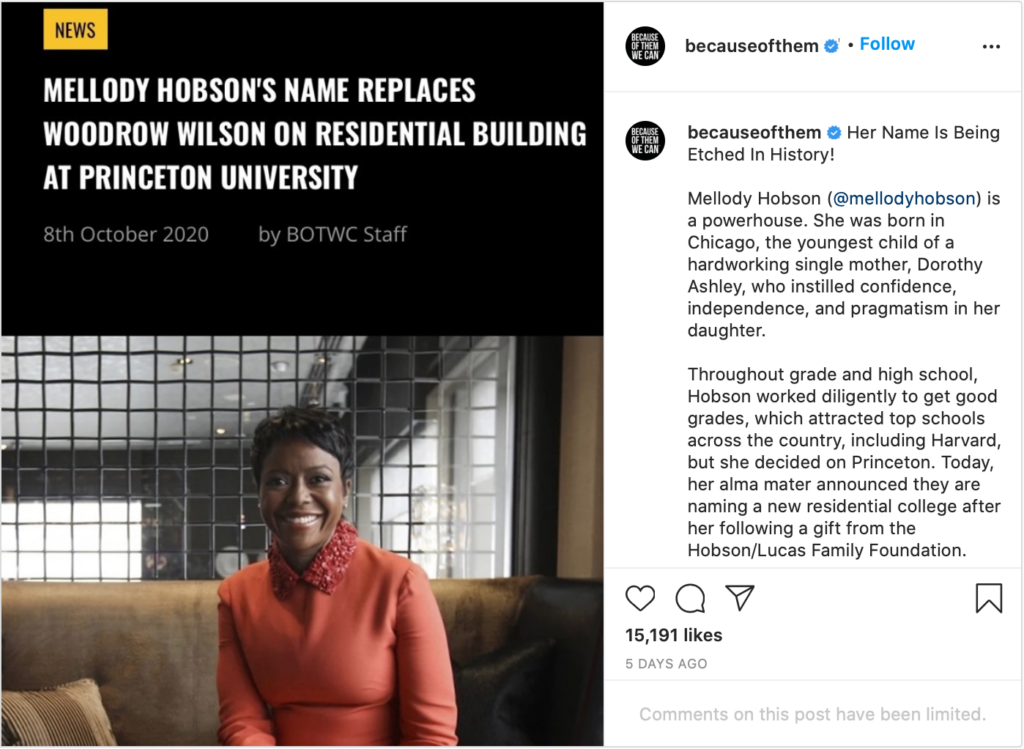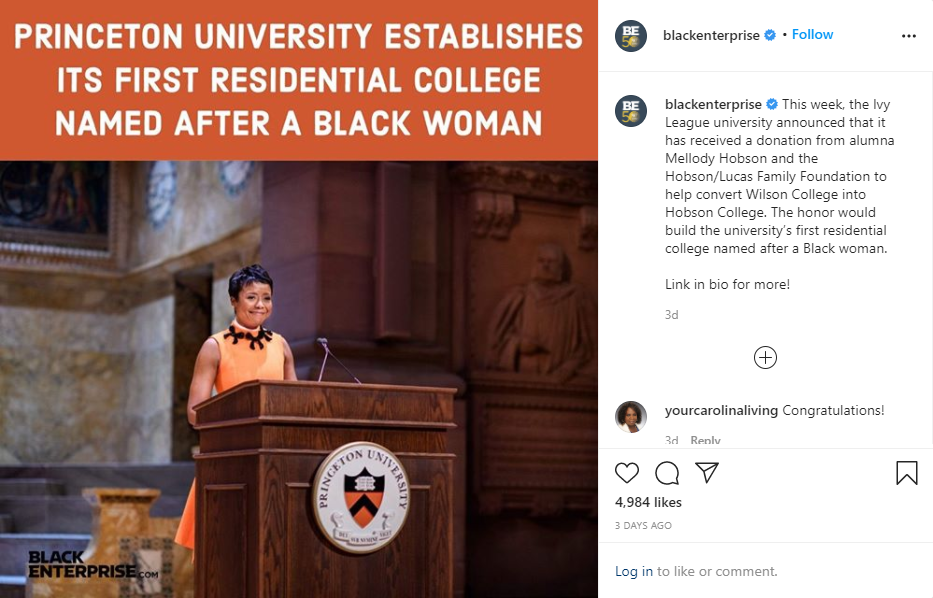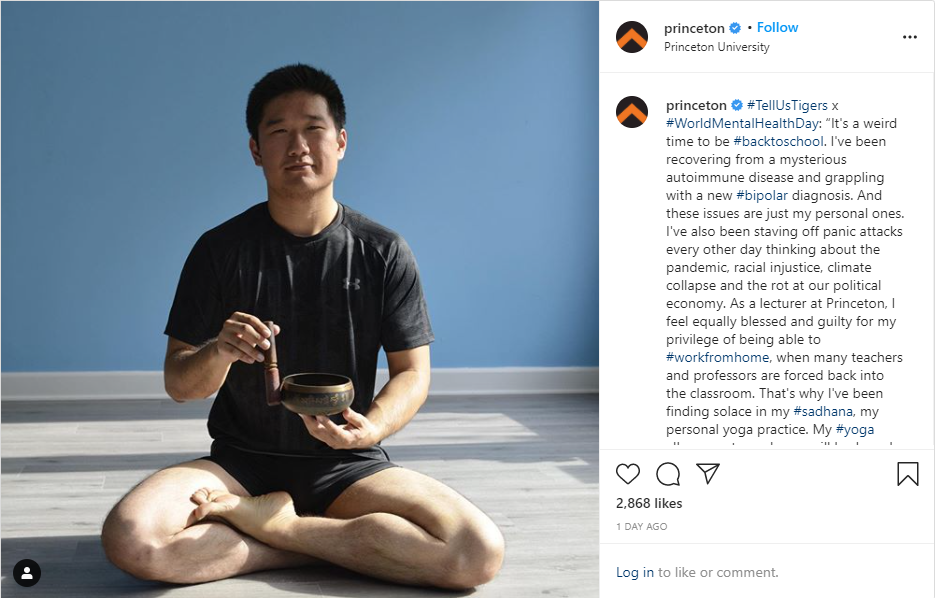Ever since Darwin’s time, some scientists have speculated that humans “self-domesticated” — that we chose less aggressive and more helpful partners, with the result that we have shifted the trajectory of our own evolution. “The evidence for this has been largely circumstantial,” said Asif Ghazanfar, a professor of psychology and neuroscience. “It’s really a popular and exciting idea but one that lacks direct evidence, a link between friendly behavior and other features of domestication.” https://www.princeton.edu/news/2020/10/15/princeton-study-suggests-monkeys-humans-may-have-self-domesticated%20
Category Archives: Uncategorized
Tighter border policies leave migrants vulnerable to effects of climate change

Tight border policies limit emigration from countries facing worsening climate conditions. A team of Princeton researchers found that when migrants can move freely, both they and the developing countries from which they came are better off financially. https://www.princeton.edu/news/2020/10/12/tighter-border-policies-leave-migrants-vulnerable-effects-climate-change%20
Trump’s campaign lures donors with absurd financial promises — and insults
From The Washington Post: Cites a new study by researchers at Princeton of political fundraising emails from this election cycle. https://www.washingtonpost.com/outlook/trumps-campaign-lures-donors-with-absurd-financial-promises–and-insults/2020/10/09/ff3ea62c-08ef-11eb-9be6-cf25fb429f1a_story.html
How Russia, China, and other governments use coronavirus disinformation to reshape geopolitics
From Bulletin of the Atomic Scientists: This is the sixth installment in a series by researchers working with Princeton University’s Empirical Studies of Conflict’s COVID-19 disinformation project. https://thebulletin.org/2020/10/how-russia-china-and-other-governments-use-coronavirus-disinformation-to-reshape-geopolitics/%20%20
Invention sparked by COVID-19 pandemic safely disinfects surfaces continuously
From Princeton Plasma Physics Laboratory: An invention to apply plasma to frequently touched items for continuous disinfection could provide a safe and effective, non-chemical way to reduce pathogens on various surfaces such as keypads, escalator handrails and other high-touch surfaces, Princeton Plasma Physics Laboratory (PPPL) inventors say. https://www.princeton.edu/news/2020/10/12/invention-sparked-covid-19-pandemic-safely-disinfects-surfaces-continuously%20
How exactly do we spread droplets as we talk? Engineers found out.

Princeton’s Howard Stone and Manouk Abkarian, a research director at the French National Centre for Scientific Research, have directly visualized how speech and breath produce and expel droplets of saliva into the air. The smallest droplets can be inhaled by other people and are a primary way that respiratory infections like COVID-19 spread from person to person. https://www.princeton.edu/news/2020/10/12/how-exactly-do-we-spread-droplets-we-talk-engineers-found-out%20
Best becomes first Black, first male director in Gender and Sexuality Studies program history
From The Daily Princetonian: Wallace D. Best, a professor of religion and African American Studies, was appointed director of the Gender and Sexuality Studies (GSS) program last month. Best is the first Black and the first male director of the program in its 38-year history. https://www.dailyprincetonian.com/article/2020/10/princeton-wallace-d-best-gss-religion-history%20%20
Addressing humanity’s environmental challenges

From physical, biological and applied sciences to art, architecture, psychology, policy and more, research groups across the University are tackling some of the toughest problems facing humanity with the fullest range of toolkits. To capture the imposing volume of work and to share the remarkable legacy it is built upon, the University has launched a new digital initiative. A flagship website — Princeton Environmental Research: A Half-Century at the Forefront — will serve as a single portal for non-expert users to more easily access and smoothly navigate the full scope of research activity arising out of more than a dozen different academic units. https://www.princeton.edu/news/2020/10/15/addressing-humanitys-environmental-challenges%20
A new museum at Princeton University designed as ‘a campus within a campus’
From Building Design + Construction magazine: One of the jewels in New Jersey’s cultural crown is Princeton University’s Art Museum, which was established in 1882, and whose present collection exceeds 110,000 objects.https://www.bdcnetwork.com/new-museum-princeton-university-designed-%E2%80%98-campus-within-campus%E2%80%99
Black Student Experience Committee reconvenes online
From The Daily Princetonian: After being put on hold due to the pandemic, the Black Student Experience Committee — chaired by Tennille Haynes, the director of the Carl A. Fields Center for Equality and Cultural Understanding — has reconvened this semester. https://www.dailyprincetonian.com/article/2020/10/black-students-experience-committee-to-reconvene-online-for-fall-semester%20%20
Five scholars join Society of Fellows in the Liberal Arts
Five new postdoctoral scholars have joined the Society of Fellows in the Liberal Arts this fall. The society is an interdisciplinary community of postdoctoral fellows and Princeton faculty members that aims to bring innovative approaches to scholarship and teaching. It offers outstanding young scholars with a recent Ph.D. the opportunity to enhance their teaching and research over a period of three years. https://www.princeton.edu/news/2020/10/15/five-scholars-join-society-fellows-liberal-arts%20
#Changemakers: Alumni Making a Difference (Mellody Hobson ’91)
From SPIA: Recently, Mellody Hobson ‘91 and the Hobson/Lucas Family Foundation announced they will fund the first residential college at Princeton named for a Black woman. Hobson College will be built on the site of First College, formerly known as Wilson College. In this Q&A, Hobson reflects on her time at Princeton, sharing the strategies she uses to be an effective leader and decision-maker today. https://spia.princeton.edu/news/changemakers-alumni-making-difference-mellody-hobson-91%20%20
Hobson gift announcement continues to receive engagement

Changing the Narrative
The extraordinary gift from Mellody Hobson announced last week marks an important next chapter in addressing the legacy of Woodrow Wilson on campus and expanding opportunity at the University and beyond.
The gift will bring a new residential college to the University, allowing generations of Princetonians to proudly say they are affiliated with Hobson College. As the 1991 alumna said, the gift is an “effort to change the narrative.”
It certainly already achieved that goal, as news of the first residential college at Princeton named for a Black woman — to be built on the site of First College, formerly known as Wilson College — has garnered national media attention from a wide range of outlets.
Hobson says of the gift:
“My hope is that my name will remind future generations of students — especially those who are Black and brown and the ‘firsts’ in their families — that they too belong. Renaming Wilson College is my very personal way of letting them know that our past does not have to be our future.”
Keep reading below for more on Hobson’s forward-thinking commitment to the University.
Stay safe and healthy.
Office of Communications
Changing the Narrative
It’s exciting to think that the Class of 2030 will be welcomed by a third new residential building thanks to an extraordinary gift from Mellody Hobson ’91.
In an “effort to change the narrative,”— as Hobson, the co-CEO of Ariel Investments, describes it— the new Hobson College will be the first residential college at Princeton named for a Black woman and will be built on the site of First College, formerly known as Wilson College.
The gift marks an important next chapter in addressing the legacy of Woodrow Wilson on campus and expanding opportunity at the University and beyond.
Hobson puts it best:
“My hope is that my name will remind future generations of students — especially those who are Black and brown and the ‘firsts’ in their families — that they too belong. Renaming Wilson College is my very personal way of letting them know that our past does not have to be our future.”
Keep reading below for more on Hobson’s forward-thinking commitment to the University.
Stay safe and healthy.
Office of Communications



Why YouTube Review Videos Are Often Really Paid Ads (and How You Can Tell the Difference): Michael Swart, Princeton Class of 2019
Cookies: Tech Security & Privacy: When you’re shopping for a new gadget online, there’s a good chance you consulted the reviews on YouTube. So many of them are well produced and very thoughtful takes on the latest computer or camera equipment, services, even food and toys. But are they unbiased? Our guest today, Michael Swart, says a lot of them are practically paid commercials without even telling you. And he has a way to tell the difference. https://engineering.princeton.edu/news/2020/10/07/why-youtube-review-videos-are-often-really-paid-ads-and-how-you-can-tell-difference
